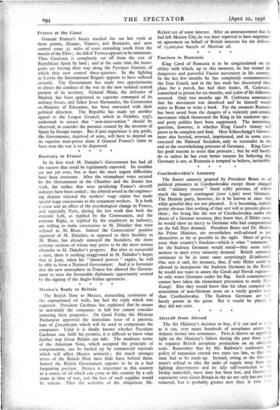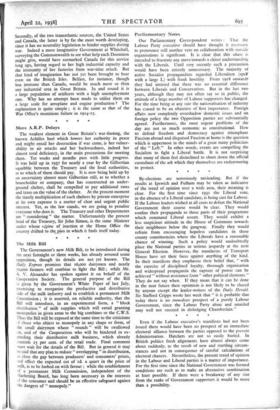Aircraft from Abroad The Air Ministry's decision to buy, if
it can and as soon as it can, very many hundreds of aeroplanes across the Atlantic invites two comments. First.it throws an appalling light on the Ministry's failure during the past three years to organise British aeroplane production on an adequate scale. Remember that by Mr. Baldwin's confession the policy of expansion started two years too lite, so that 1,Kt time had to be made up. Instead, owing to the Govern- ment's refusal to take the tasks of supply away from the fighting departments' and its silly self-restriction to the Inskip makeshift, more time has been lost, and German: s superiority over Great Britain in the air not only has not been removed, but is probably greater now than it ever " as. Secondly, of the two transatlantic sources, the United States and Canada, the latter is by far the most worth developing, since it has no neutrality legislation to hinder supplies during war. Indeed a more imaginative Government at Whitehall, surveying the Commonwealth to see what help each Dominion might give, would have earmarked Canada for this service long ago, having regard to her high industrial capacity and the immunity of her factories from war-time attack. But that kind of imagination has not yet been brought to bear even on the British Isles. Belfast, for instance, though less immune than Canada, would be much more so than any industrial area in Great Britain. In and round it is a large population of artificers with a high unemployment rate. Why has no attempt been made to utilise them on a large scale for aeroplane and engine production ? The explanation is quite simple ; it is the same as that of the War Office's munitions failure in 1914-15.











































 Previous page
Previous page